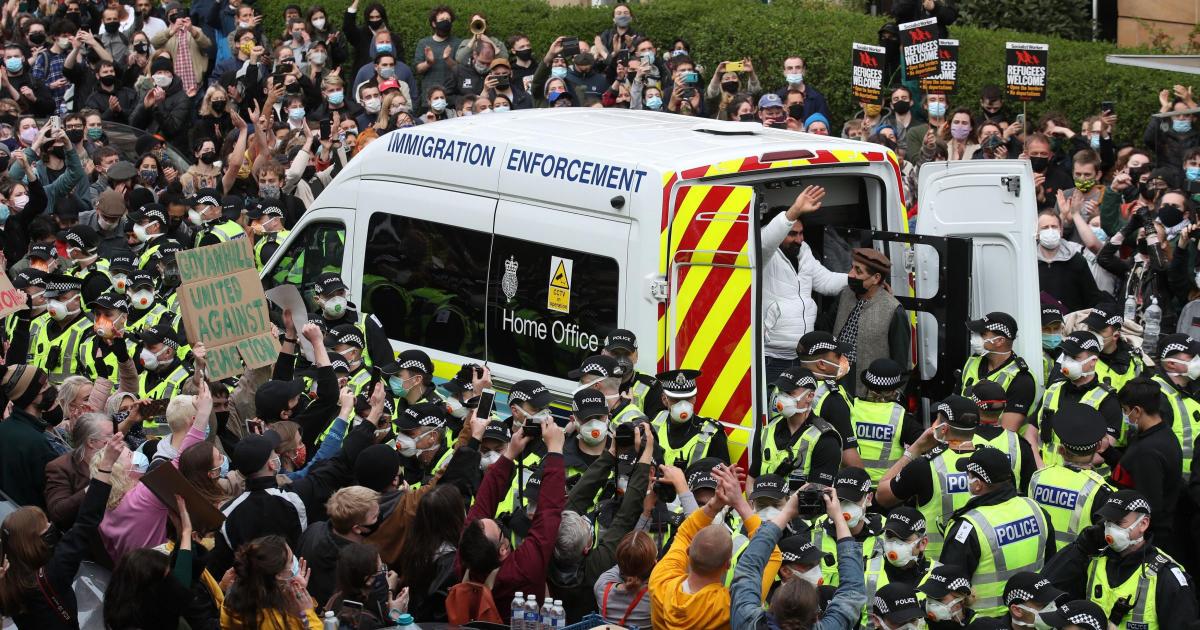They weren’t living in luxury hotels. They were people crammed into single rooms with no cooking facilities, for months or years, while the UK Home Office failed to process their claims.
Parents described raising their children in conditions no-one would choose, while eating poor food they couldn’t prepare themselves, unable to open a window for fresh air; isolated and vulnerable. One told us they felt like they were being punished for surviving a war.
That’s the reality of life in the UK asylum system. A system that dehumanises people who have already lost almost everything.
READ MORE: Refugees in Scotland on why they want to work and contribute
Yet despite this truth being well known to those who work in frontline services, a different story is now spreading across Scotland, fuelled by disinformation, anger and co-ordinated campaigns designed to stoke fear for political gains. In recent months, we’ve seen organised protests outside hotels, in town squares and even at public meetings that had nothing to do with immigration. Rumours have spread in my own constituency about sheltered housing complexes closing, with false claims that they were being repurposed for refugees.
People are being bussed in from England to stir up hostility, carrying banners and slogans not rooted in fact but fear.
For years, we’ve rejected that kind of rhetoric. We saw the opposite on Kenmure Street in Glasgow when neighbours and strangers linked arms to stop two men from being taken away by immigration enforcement. That was Scotland at its best: compassionate, inclusive and determined.
In many towns where anti-refugee protests are held, counter-protests spring up alongside them. People turn out with banners that say “Refugees Welcome Here” refusing to let hate go unchallenged. That tells me that while hostility is rising, there is also a deep well of decency in our communities that we must nurture.
(Image: Jeff J Mitchell)
It is the UK Home Office that decides where asylum seekers are housed and who processes – or too often fails to process – their claims. The backlog has left thousands of people stuck in unsuitable hotel accommodation. The Scottish Government has no power over these policies, though councils play a role in supporting people once they’re placed.
And that is where Scotland deserves better. Because Scotland’s reality is that we need immigration. Our seafood processing plants in Peterhead and Buckie rely on migrant workers. Our care sector, already under strain, would collapse without them. To turn away from immigration would be to turn away from our own economic survival.
What troubles me most is the way people are being dehumanised. Imagine fleeing torture or war, risking everything to save your children, only to end up trapped in a hotel room for mostly 20 hours a day, unable to leave without fear, targeted by online mobs publishing the address of your hotel. That is not a life of comfort but a life suspended in fear. And yet, even in those circumstances, some of the rhetoric I see online calls these men “predators” or “paedophiles”.
The same people who once posted “All Lives Matter” are now shouting that refugees should “go home”.
The same people who say “Not All Men” when women raise concerns about male violence are willing to portray all male refugees as a threat. The contradictions speak volumes.
That is why I welcome The National’s series focusing on positive stories about refugees in Scotland as a counter to the sensationalist headlines we see elsewhere, such as “Immigration Up!” splashed across front pages designed to scare rather than inform.
These headlines are not neutral reporting. They are part of the problem. They pit people against one another and feed the fear far-right groups exploit. The media has a responsibility to report facts, not stoke flames; to remind people that refugees are not taking our resources, that it is government policy that has starved our services.
Westminster leaves Scotland with pocket money, while decisions about investment and immigration are kept out of our hands. That is what creates scarcity, not families waiting in temporary accommodation.
History has already taught us the danger of dehumanising people. We cannot pretend we don’t know where that road leads. And yet here we are, seeing mobs gather outside hotels where families live, chanting and jeering at people who have already endured the worst. It’s not protest, it is cruelty.
And here is where we can change the narrative. What if, instead of shouting outside stuffy hotel rooms where children are already living in fear, we invited them to a play date at the park? What if, instead of chanting at families who have fled war, we asked them to join us at a coffee morning, at our churches, to share food, culture and friendship?
If we showed love and compassion rather than suspicion, would we not all benefit? Our communities would be stronger and richer.
Changing the narrative means looking past fearmongering headlines and remembering our shared humanity. It means rejecting the idea scarcity is caused by those with the least and recognising that it is Westminster’s decisions that have drained our resources while denying us the powers we need.
Scotland can choose differently. We can choose kindness over cruelty, truth over disinformation, and compassion over hate.
